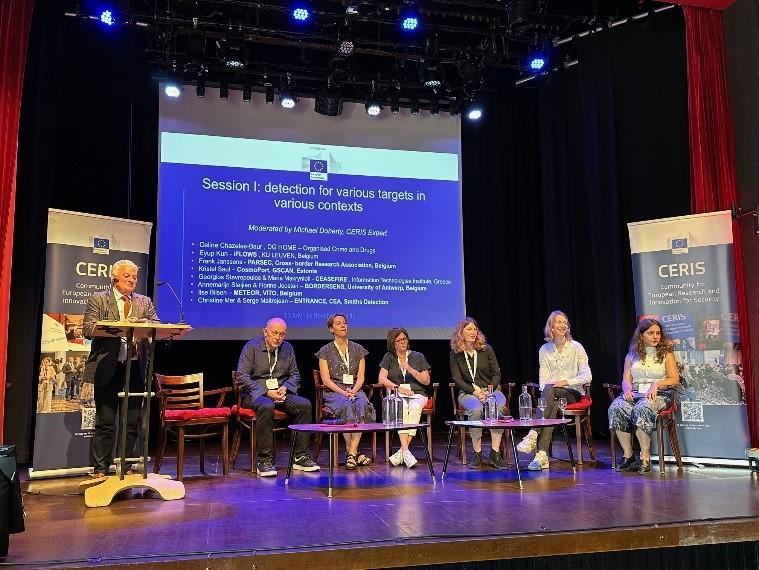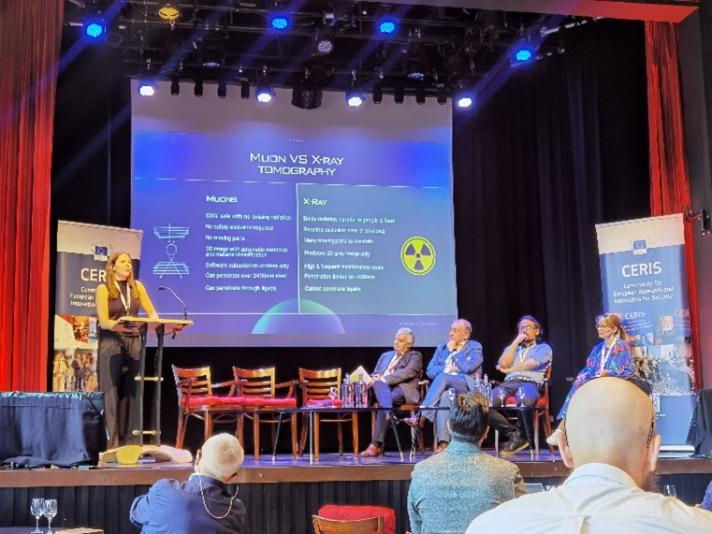
On the 11 July 2024, a CERIS workshop on innovation for e-commerce security and countering illicit transactions across EU borders, organised by DG HOME’s Security Research and Innovation Unit, brought together 72 participants from customs and law enforcement, shipping and postal operators, small and medium-sized enterprises and large companies, as well as industry representatives, researchers, and representatives from relevant Commission services and EU agencies.
Under the CERIS banner (Community for European Research and Innovation for Security), the workshop aimed to present and discuss EU-funded and European innovation and technologies to fight trafficking in postal service, money laundering, financial fraud, and the circumvention of sanctions and export controls.
As underlined by participants during the workshop, in 2023 a total of 2.3 billion items, not exceeding EUR 150, were imported for a total value of EUR 28 billion. This represents about 1% of the import value into the EU in 2023 and around 80% came from China. For 2024, it is expected that approximately 4 billion parcels will be imported in the EU by the end of the year. This increased volume represents a serious challenge for EU customs.
While addressing traditional threats like trafficking of drugs or smuggling of cigarettes, customs must also deal with emerging challenges like the circumvention of trade sanctions or the trafficking of looted archaeological artefacts. EU-funded research and innovation helps customs agencies and administrations to effectively respond to these new challenges today and tomorrow, for example to detect anomalies and concealments without slowing down the flow of traffic. Innovation based on advanced data analytics combined with fast and accurate detection technologies is the right approach for tackling those issues.
The workshop was opened by Marta Cygan, Innovation and Audit Director in DG HOME, who emphasized the Commission’s commitment to counter the illicit traffic of physical and digital goods and services, including drugs and to disrupt the business models of criminal organisation by investing in innovative solutions. In fact, criminal group are increasingly using new technologies such as artificial intelligence and quickly adapt to a changing environment with new modus operandi.
The workshop was organised in three panels. The first panel presented innovative solutions for scanners and sensors to detect, in a non-invasive way, a range of threats, including drugs and explosives, in a range of contexts, from postal hubs to logistic terminals. The second panel focused on groundbreaking models for data analysis to automatically detect and pursue illicit transactions, such as those related to money laundering of financial frauds. In conclusion the last panel hosted an engaging discussion on current and future challenges for law enforcement, customs authorities, and policymakers.
The panellists addressed several key challenges and opportunities in this domain:
- One solution discussed was the European Union's Customs Reform proposal, which aims to ensure a future-proof and digital customs system that can adapt to the rapidly evolving landscape.
- The panellists also highlighted the importance of embracing innovation and factoring into market considerations the social costs and benefits of adopting new technologies, such as in the case of fighting drug trafficking.
- Data was identified as another critical aspect, with emphasis on the need of users and innovators to access meaningful, secure and reliable data to train artificial intelligence models and inform policy decisions.
- Finally, the panellists acknowledged the need to strike a balance between investing in research on "traditional" technologies, such as X-rays, and exploring new ones, like muons and artificial intelligence. This balanced approach is expected to help advance innovation to increase e-commerce security and counter illicit transactions, while ensuring the necessary safeguards and regulatory frameworks are in place.
The workshop was enriched by two keynote speeches. The first one was given by a representative from DG TAXUD on the latest release of the "Import Control System 2", an electronic import platform that supports customs in the pre-arrival risk assessment for all goods entering the EU. The second keynote speech was given by Europol on its role as financial intelligence hub supporting the fight against e-commerce VAT fraud.
Details
- Publication date
- 19 July 2024
- Author
- Directorate-General for Migration and Home Affairs

